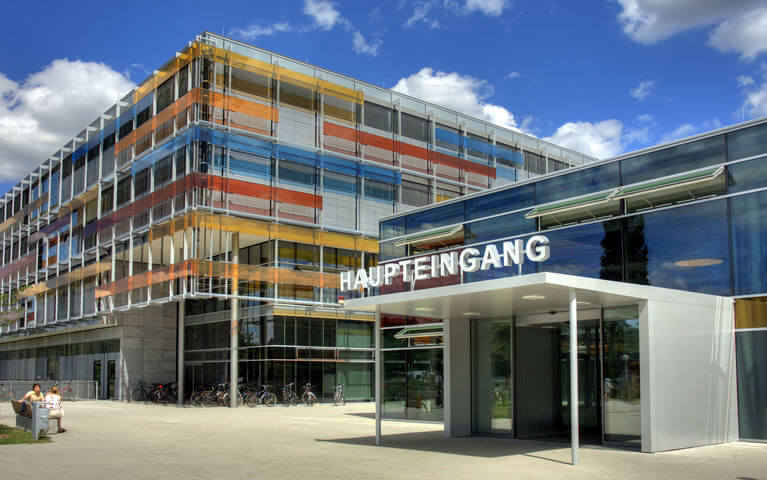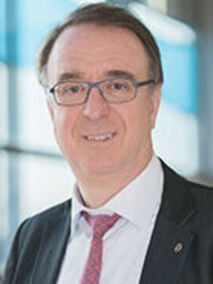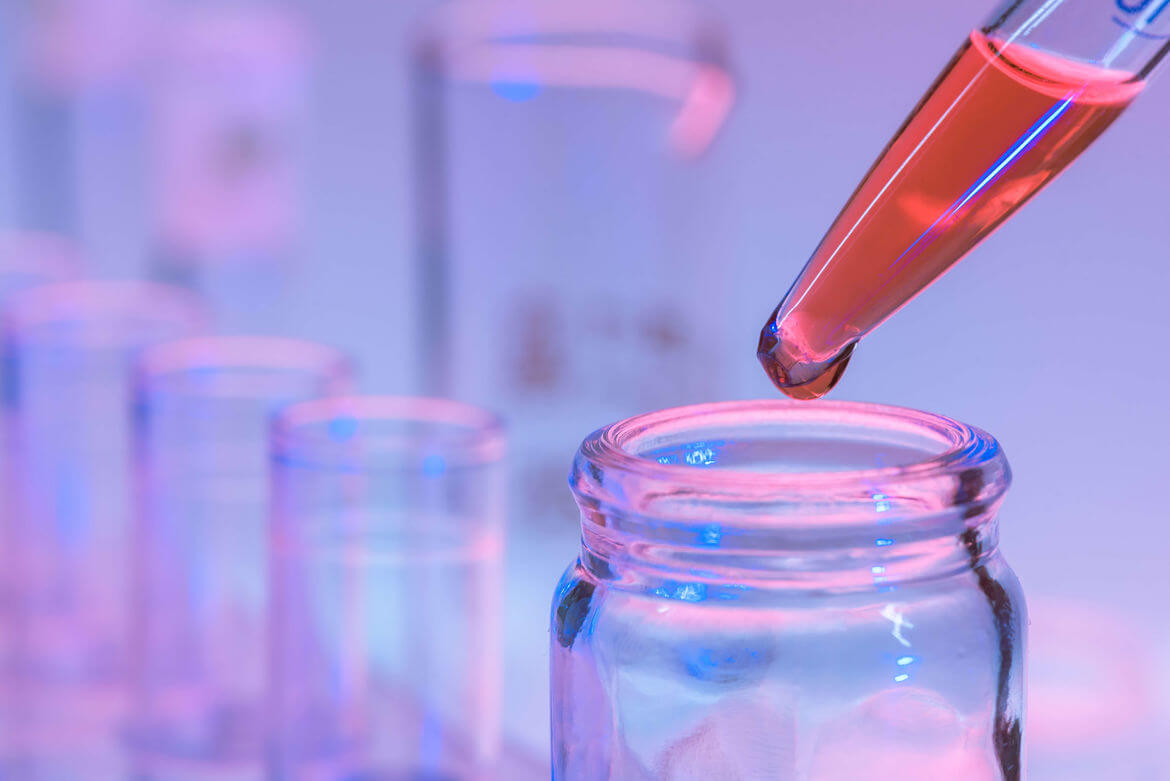Division of Pediatric Endocrinology and Diabetology
at the Center for Child and Adolescent Medicine
We perform diagnostic procedures, provide therapy, and aim for the early detection of the many kinds of congenital and acquired hormone disorders in this specialized division of the Center for Child and Adolescent Medicine. Our team, consisting of pediatricians specializing in endocrinology and diabetology, diabetes consultants, dieticians, psychologists, social workers, and specially trained nursing staff, treats about 3,000 patients a year.
Hormone disorders can lead to severe organ damage, physical or mental disabilities, and even death if left untreated. Most hormone disorders can be treated successfully if they are diagnosed in time.
In the Pediatric Endocrinology section, our interdisciplinary team headed by Professor Dr. Markus Bettendorf treats about 2,800 children and adolescents with congenital and acquired hormone disorders every year, both on an outpatient and on a partially or fully inpatient basis.
Medical Areas of Expertise
- Growth disorders (excessively short or tall stature)
- Obesity
- Thyroid disorders (underactive = hypothyroidism, overactive = hyperthyroidism, inflammation = thyroiditis, goiter = struma)
- Disorders of the parathyroid glands (overactive = hyperparathyroidism, underactive = hypoparathyroidism, and pseudohypoparathyroidism)
- Disorders of bone metabolism and malformations of the skeletal system (osteodysplasia, calcium, phosphate, Vitamin D)
- Disorders of the adrenal glands (adrenogenital syndrome, Addison’s disease, Cushing syndrome)
- Disorders of puberty (premature or delayed / absent / stagnant puberty)
- Disorders of sexual development (DSD), malformation of the urethral opening (hypospadias)
- Disorders of the pituitary gland (hypophysis), including congenital and acquired hormone deficits (deficits in growth hormone, thyroid, adrenal gland, puberty accompanying brain tumors and after radiation and operations)
- Disorders of fluid regulation (diabetes insipidus)
- Undescended testicle (retractile testis, gliding and inguinal testis, cryptorchism)
- Chromosomal anomalies (e.g., Ullrich-Turner syndrome, Klinefelter syndrome, Prader-Willi syndrome, Marfan syndrome)
Hormone Laboratory
The special hormone diagnostic procedures for children and adolescents are conducted and analyzed in our own hormone laboratory.
- Thyroid: TSH, T4, fT4, T3, rT3, thyroglobulin
- Growth: growth hormone, IGF-I, IGFBP3
- Puberty: LH, FSH
- Failure to thrive: gliadin antibodies and transglutaminase antibodies
- Newborn screening (confirmation diagnosis) for hypothyroidism and adrenogenital syndrome
One of the largest diabetes centers for children in Germany
Some 260 children and adolescents with diabetes mellitus and genetically determined forms of diabetes mellitus are treated every year by the interdisciplinary team headed by Dr. Jürgen Grulich-Henn in the Diabetology section, both on an outpatient and on a partially or fully inpatient basis. This makes us one of the largest diabetes centers for children in Germany.
Every year we treat about 30 children with newly diagnosed type I diabetes, sometimes in intensive care if they suffer from acute metabolic imbalance. In addition, we care for those diabetic children and adolescents who are undergoing surgery, both before and afterward.
For patients who have been recently diagnosed with diabetes and their families, we offer structured training sessions in the practical tasks of measuring blood sugar, injecting insulin, and preparing food and calculating nutrients. The training takes place regularly during the treatment period in order to increase the efficacy of the therapy and to prevent long-term consequences.
Our hospital is recognized by the Deutsche Diabetes Gesellschaft (“German Diabetes Society” DDG) as an institution for training and treating children and adolescents with type I diabetes.
Contact & Stay
Parents can be placed in the patient's room or in a parents' room on the ward. There are also a number of private accommodations nearby.
If you you need further information or help please contact us via the International Office or directly the hospital director’s office (Telefon: +49-6221-56 4100 or via Email: georg.hoffmann(at)med.uni-heidelberg.de).
-

Our hospital is recognized by the Deutsche Diabetes Gesellschaft (“German Diabetes Society” DDG) as an institution for training and treating children and adolescents with type I diabetes.
Overview: All Clinical Departments at Heidelberg University Hospital
Overview of Departments: Childhood Diseases
- Pediatric Orthopedics
- Childhood Tumors
- Metabolic Diseases in Childhood
- Diabetes mellitus and Obesity in Childhood
- Pediatric Surgery
- Pediatric Orthopedics
- Developmental Disorders and Neurological Diseases in Childhood
- Kidney Diseases in Childhood
- Pediatric Cardiology
- Pediatric Heart Surgery
- Cystic Fibrosis




